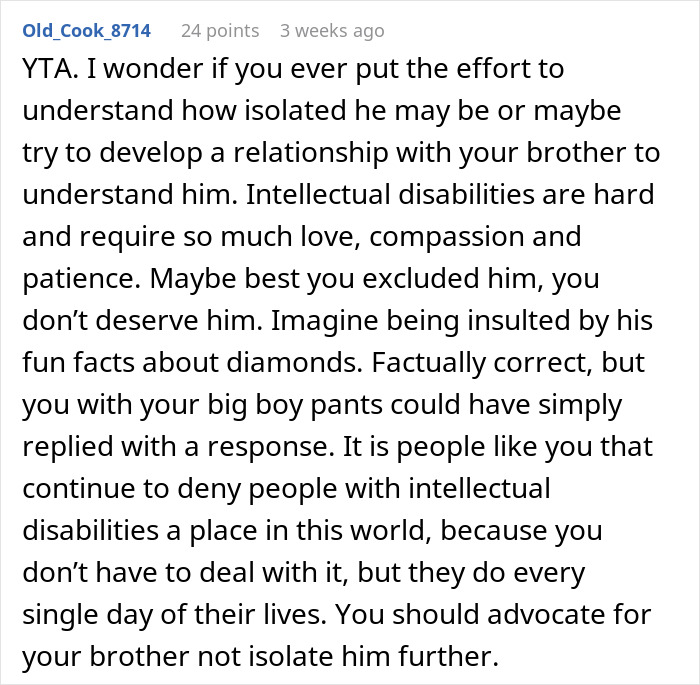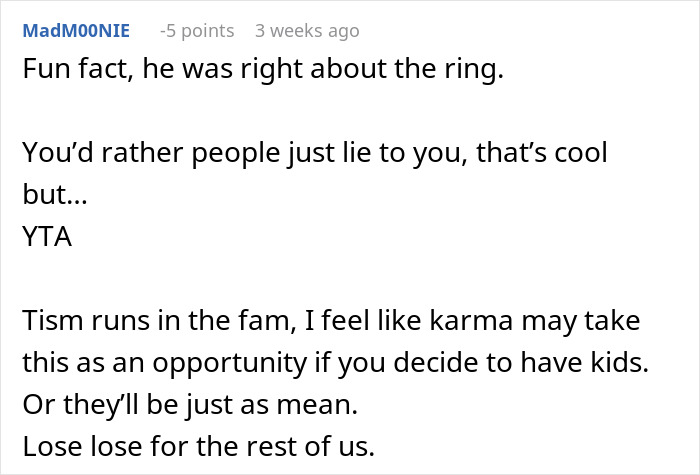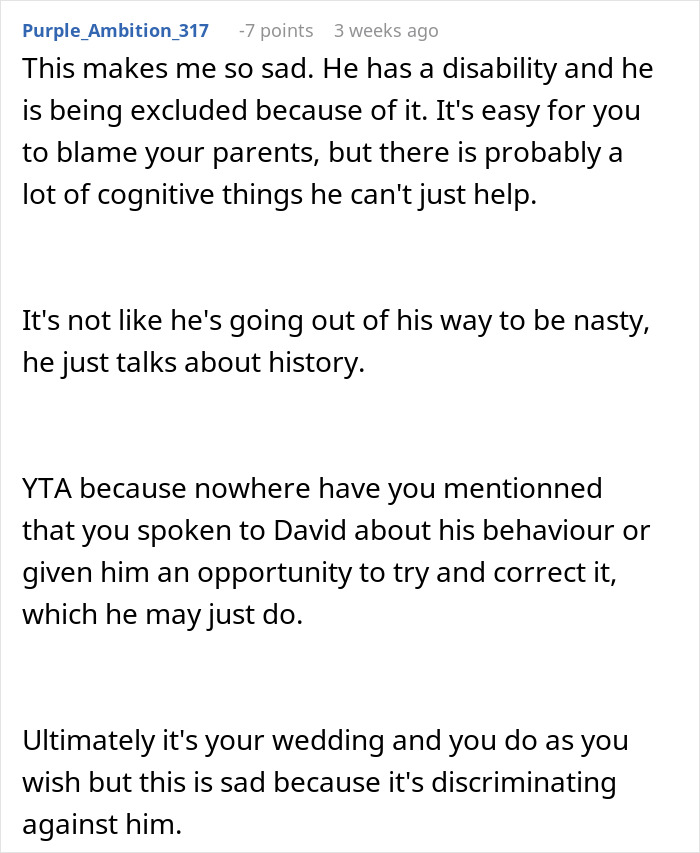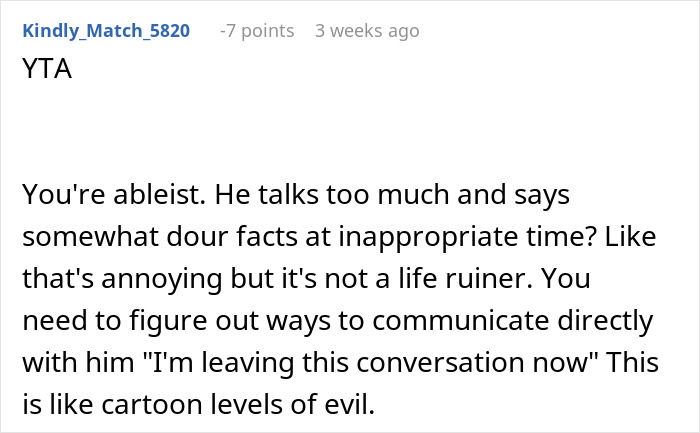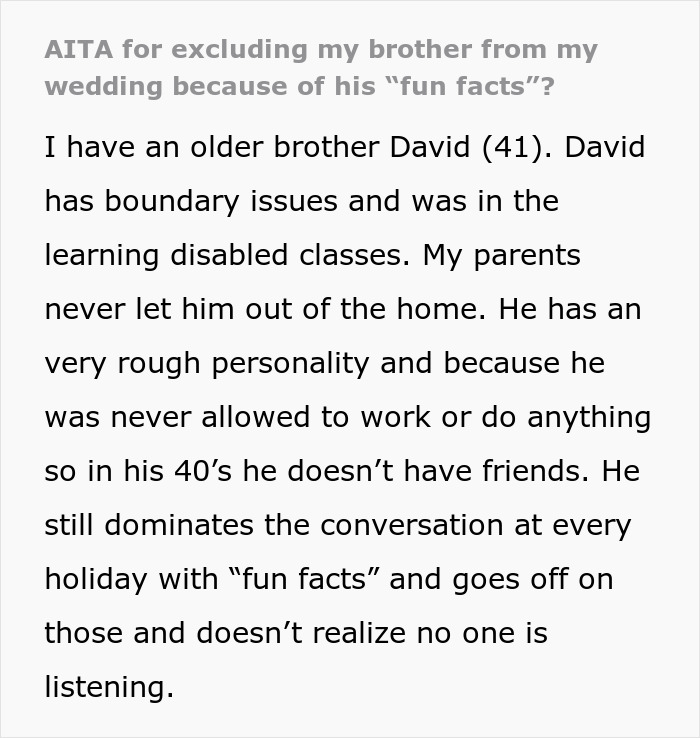Weddings can be challenging for people with disabilities. Such occasions are famously known to be loud and crowded, which can quickly become overwhelming, especially for those with less visible conditions like autism, ADHD, or neurodiversity. Naturally, they might not do their best in such a setting, making it an unpleasant experience.
That’s why this couple decided to exclude the groom’s brother from their wedding. However, his parents, who deny his condition, started an argument about it, insisting that they reconsider.
Scroll down to find the full story and a conversation with Benjamin Meyer, a bilingual psychotherapist and coach specializing in neurodivergent adults and Ruth Williams, wedding and event planner and founder of Eventaholics, who kindly agreed to tell us more about neurodivergent people at weddings.
It’s entirely up to the couple to decide who they exclude from their wedding

Image credits: Irina Iriser / pexels (not the actual photo)
However, when this couple wanted to exclude the groom’s brother, their parents strongly disagreed
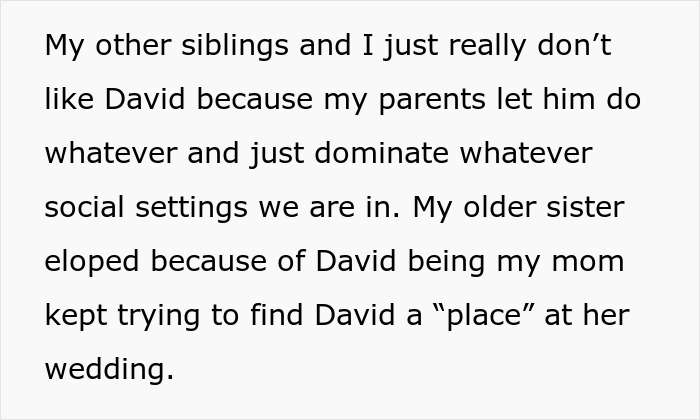
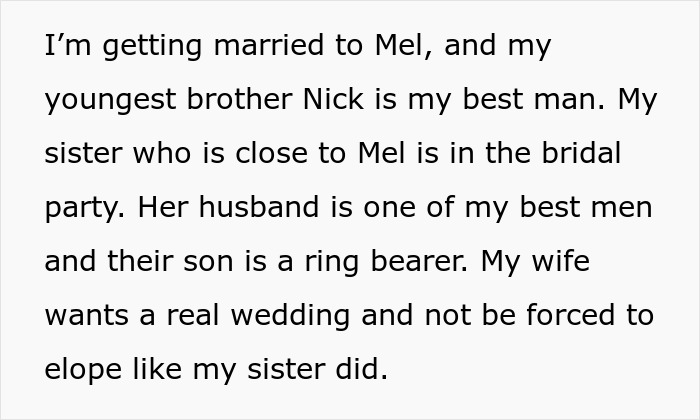
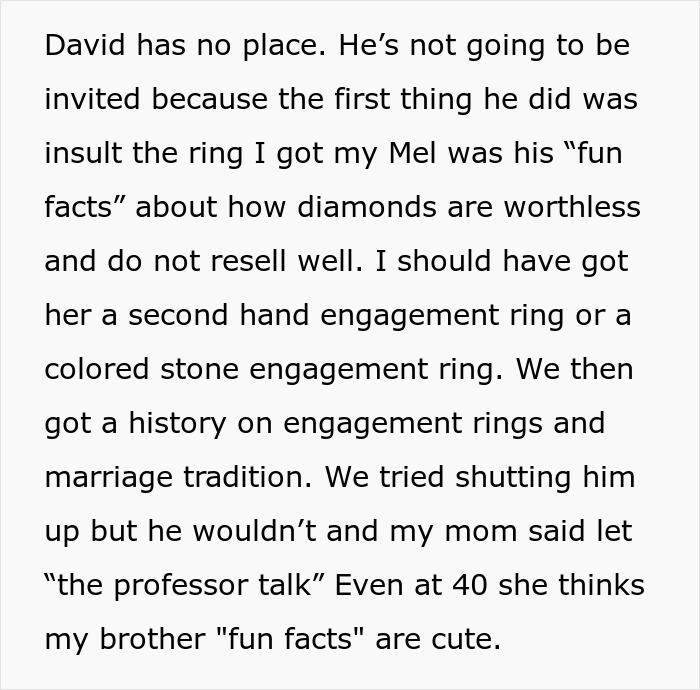

Image credits: piasupuntongpool / envato (not the actual photo)
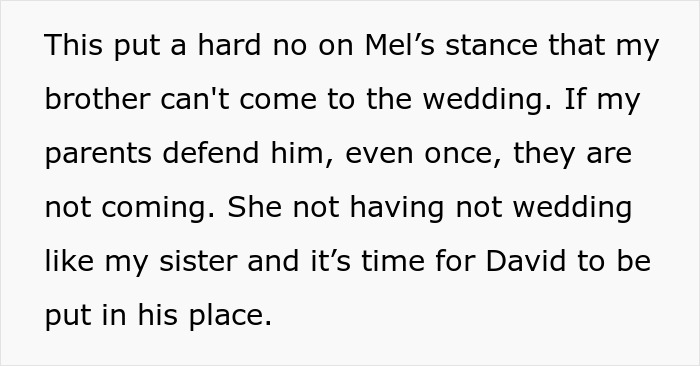
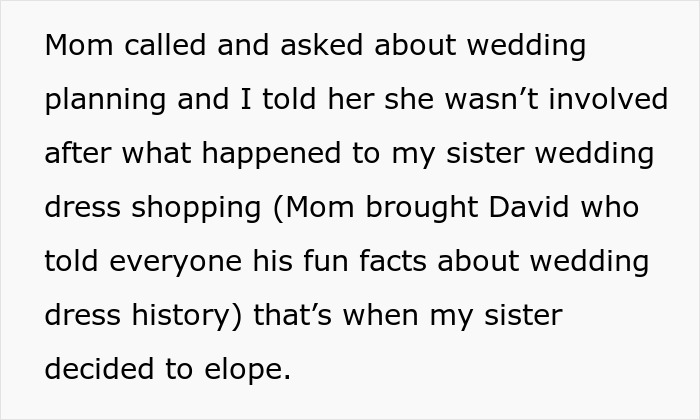
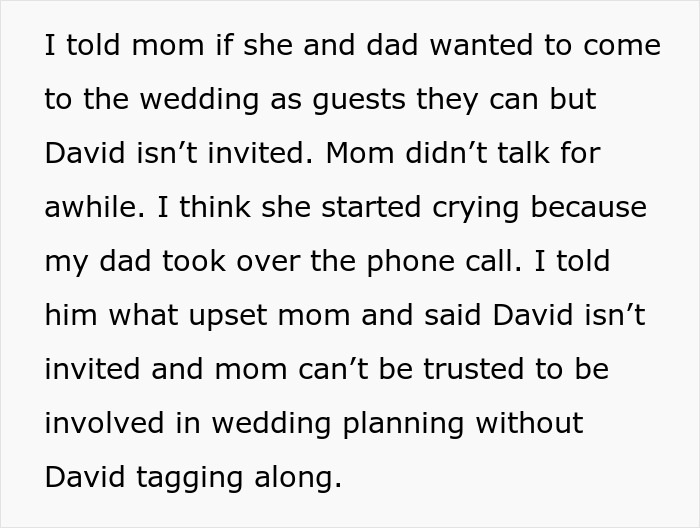
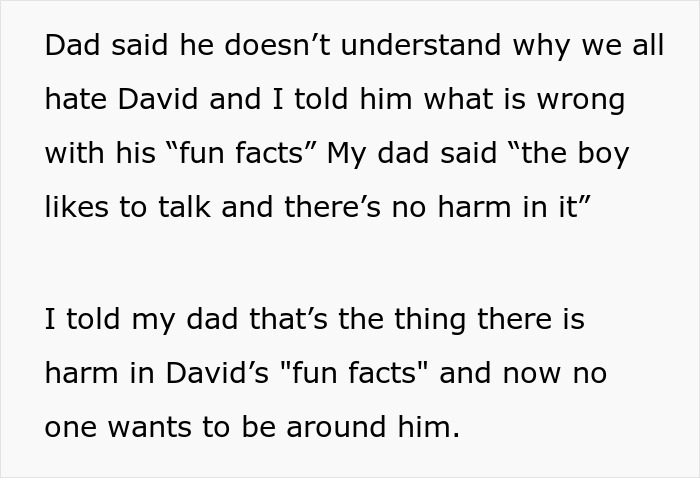

Image credits: Correct_Royal_4033
A quarter of people with autism spectrum disorder haven’t been diagnosed officially
It’s estimated that globally, 1 person in 100 has autism. These are quite rough estimates, as around a quarter of people with autism spectrum disorder haven’t been diagnosed officially.
“Autism Spectrum Disorder (ASD) varies so much from person to person,” wedding and event planner and founder of Eventaholics, Ruth Williams, previously explained to Magpie Wedding. She strongly feels about this topic as her son was diagnosed with this disorder at 6.
“Some people get overwhelmed by lots of sensory input (bright lights, loud noises, new smells, being too hot or cold, etc.) or even a lack of it (sitting quietly for a long time), others may be anxious about not having control of events and uncomfortable being out of routine and others struggle to understand what’s socially acceptable behaviour or panic among lots of people they don’t know.”
The saying “If you’ve met one autistic, you’ve met one autistic” summarizes the condition perfectly. This means that all autistic people are unique but can also share traits that are typical of the condition, like finding social communication and interaction difficult.
When it comes to inviting them to celebrations like weddings, there are definitely some things to consider. “Weddings can have a lot of sensory input. For a person on the spectrum, the music, sounds, and smells can be overwhelming,” says Benjamin Meyer, a bilingual psychotherapist and coach specializing in neurodivergent adults.
“It is important to be thoughtful about this when planning a wedding or major event. Also, a lot of socializing can be overwhelming for someone on the spectrum, especially if they are expected to maintain different social conventions such as eye contact. Allowing someone space to decide when and how they interact with other guests and if they need space to take a break is thoughtful.”
“Weddings, however intimate, are still technically large crowds for autistic individuals. So the risk of sensory overload is quite high,” reiterates Williams.
“It’s hard to pin point because many land on different parts of the spectrum. Likely challenges are a change from their usual routine, the social aspect of having to have a conversation that’s not in your daily hub, and sound levels. Food selection unless otherwise requested before hand can sometimes cause upset and even travelling to a new place or a long distance to wedding venues can cause distress. ”
“To be excluded is to feel as if you are not accepted or as if something is wrong with you”
Despite many challenges, people with autism shouldn’t be excluded from such celebrations, Williams says. “No matter where we end up on the spectrum, people like to have a choice. To be excluded is to feel as if you are not accepted or as if something is wrong with you, which isn’t the case. If they are in your close circle, speak to them first about potential challenges they may have on the day and ask them if they would like to attend or if there is anything they can do to accommodate their needs for their attendance.”
They might even prefer to sit the occasion out, as crowds of people may not be their kind of pleasant day. But it’s still important to give them a choice.
“It is not so much about excluding, but understanding that someone may not be comfortable interacting in a wedding that has overwhelming sensory input or requires them to socialize in a way they are not comfortable with, also known as an aspect of ‘masking'” says Meyer.
“Therefore, explaining how a wedding is going to be setup and accepting their answer if they don’t want to participate, is a good step. If the wedding is not designed to be comfortable for them and/or the other guests, it is good to let them know.”
If a person with autism spectrum disorder decides to attend, experts suggest a few things to make their experience more comfortable, as their needs are also important even when the day’s focus is on the couple.
“Having a place for the guests to take a break without too much sensory input, while also accepting that they may not need or be able to socialize with all of the guests can be thoughtful. Maybe having a table that is away from sensory input for them to enjoy their meal could be helpful. The best policy is to ask what they need!” recommends Meyer.
Meanwhile, Williams advises, “Preapprove their meals before hand, talk to the DJ or AV team about sound levels and calm lighting, and be mindful that the wedding reception may not be something that the guests would want to attend and they may just want to attend the ceremony (don’t take it personally). Also, run through the wedding programme before hand so they know what to expect on the day.”
Meyer concludes by saying, “Many people on the spectrum have the same desires to socialize and engage with others, including at a wedding! A few thoughtful accommodations or questions at the beginning can make a big difference!”
Some readers sided with the groom, saying that it was the parents’ fault
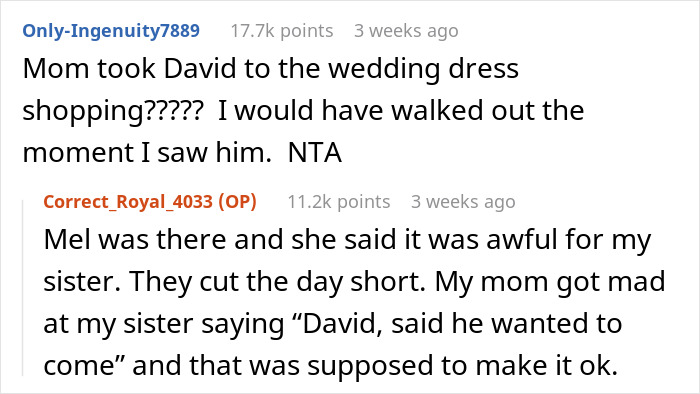
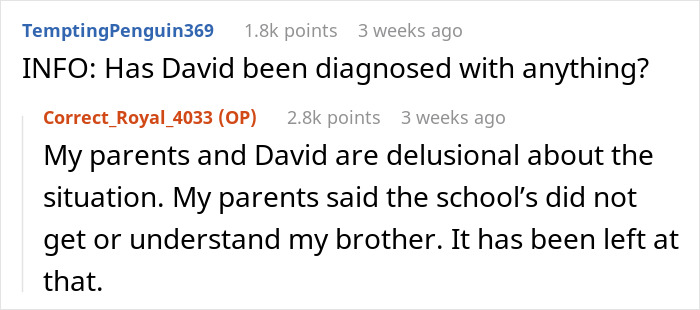
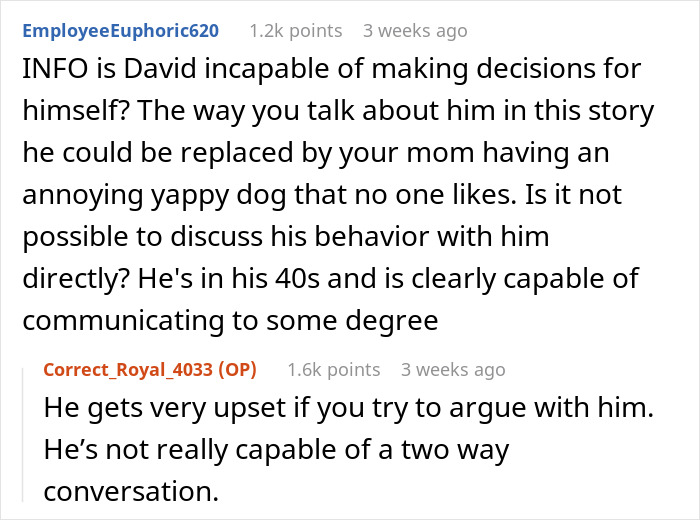
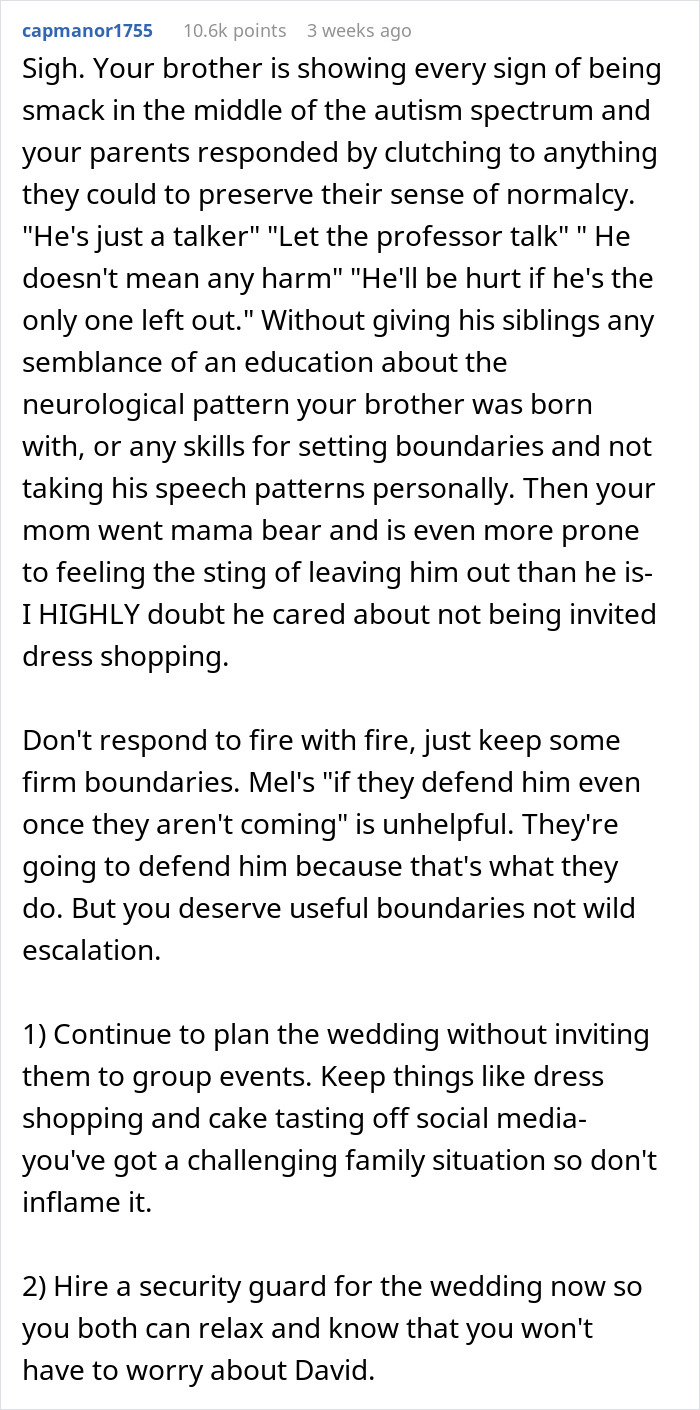
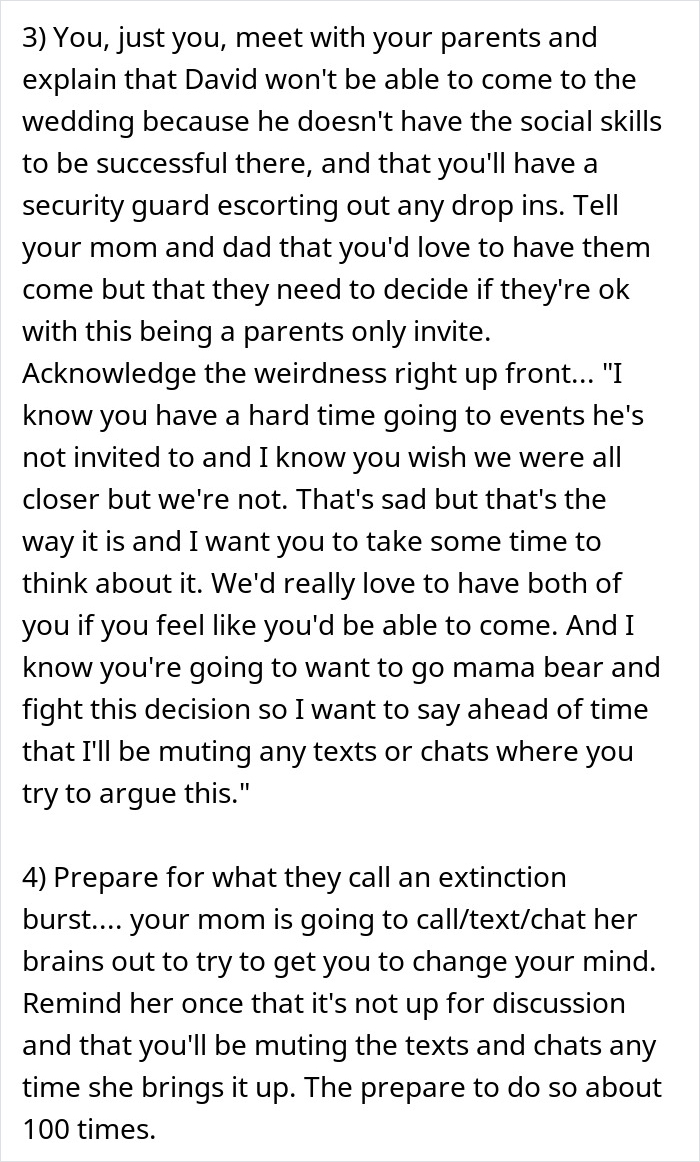

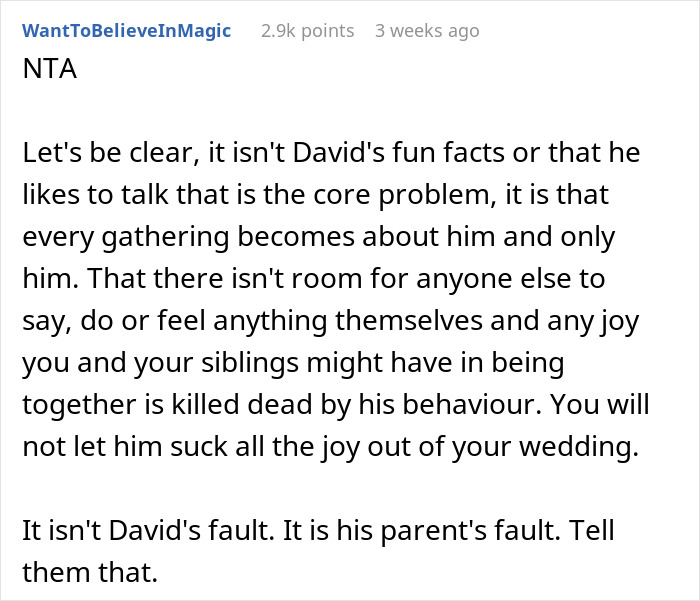

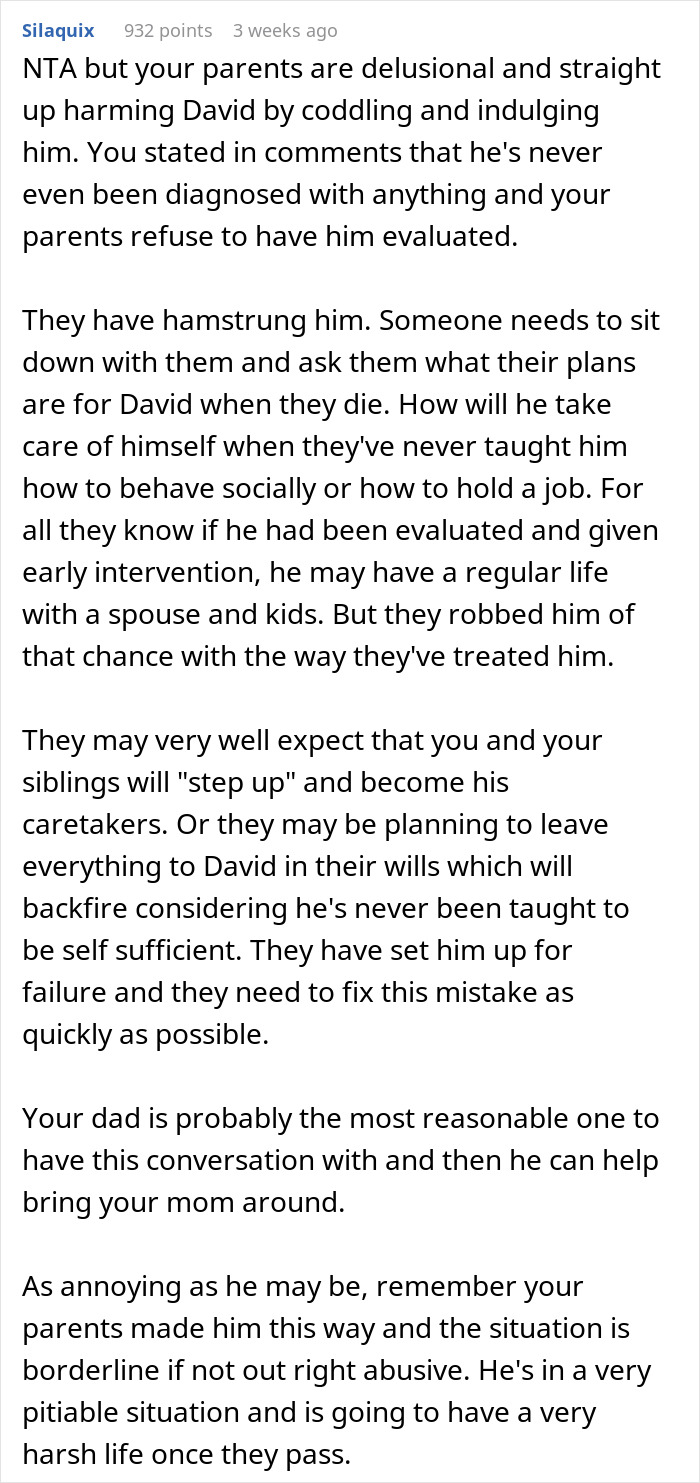
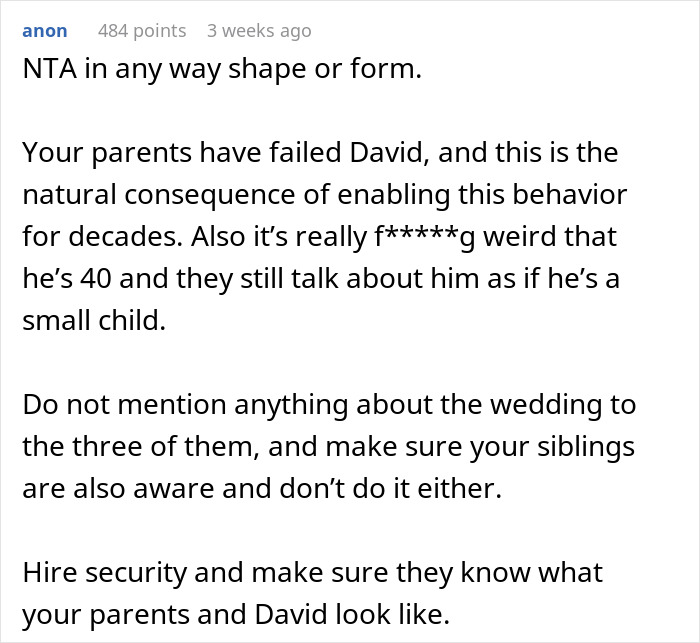
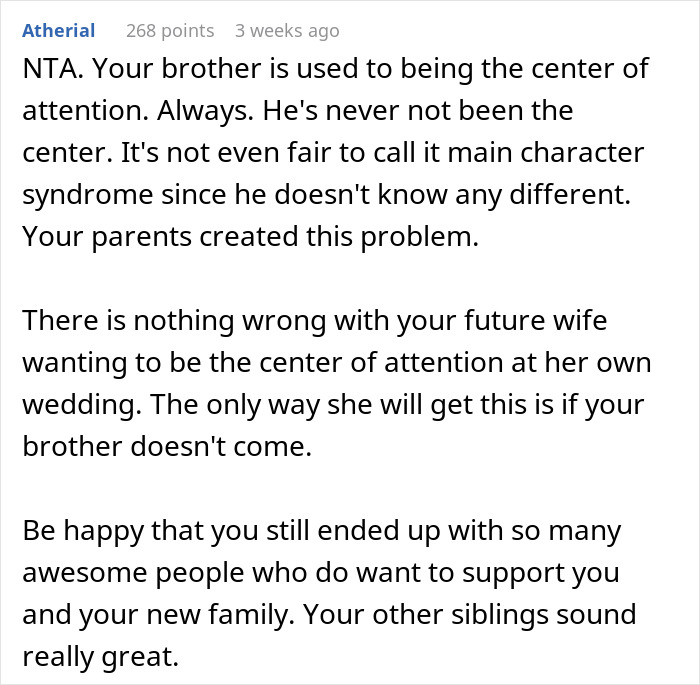
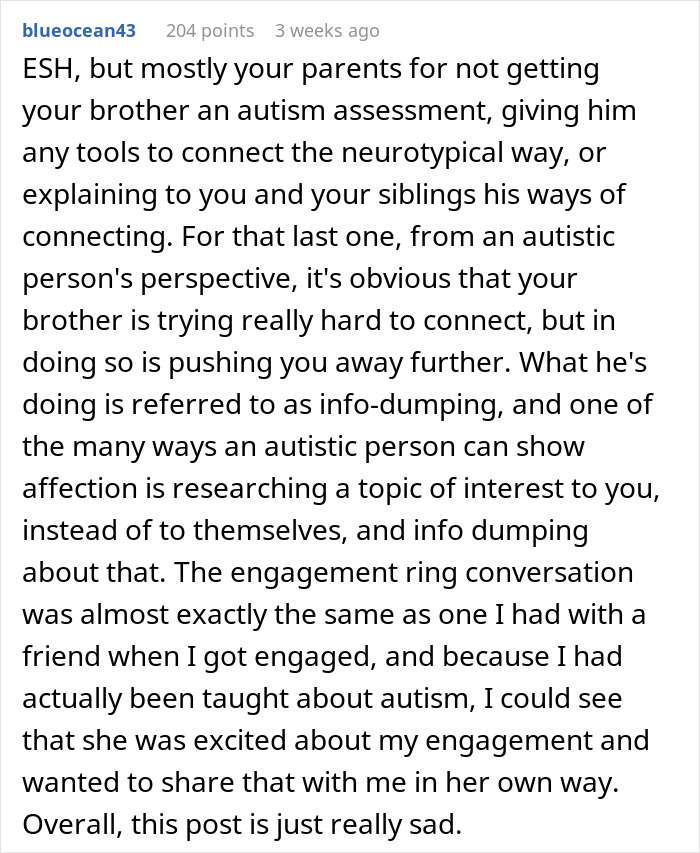

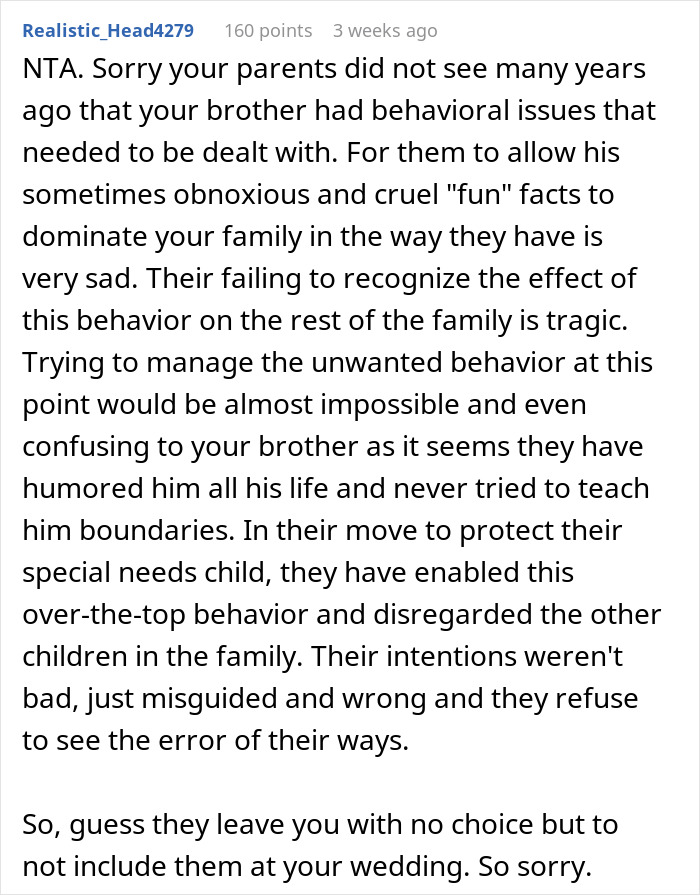
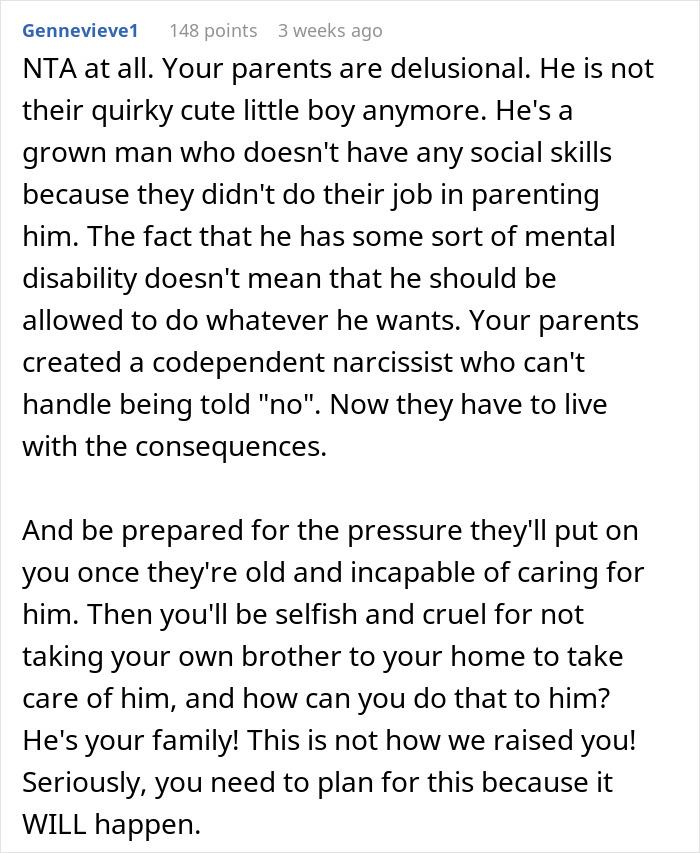
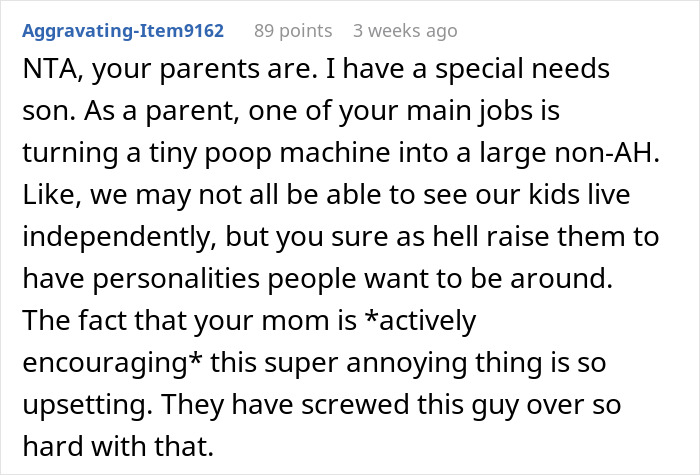
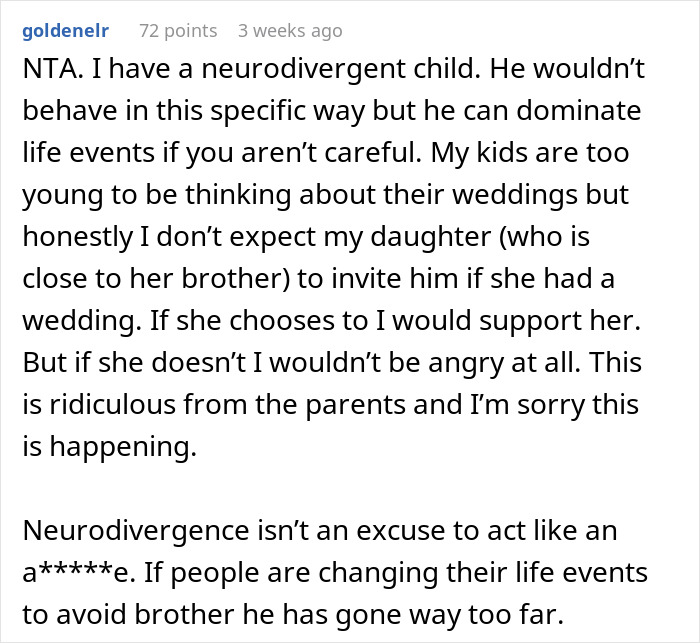

Others felt that it was wrong to exclude the brother because of his disability
